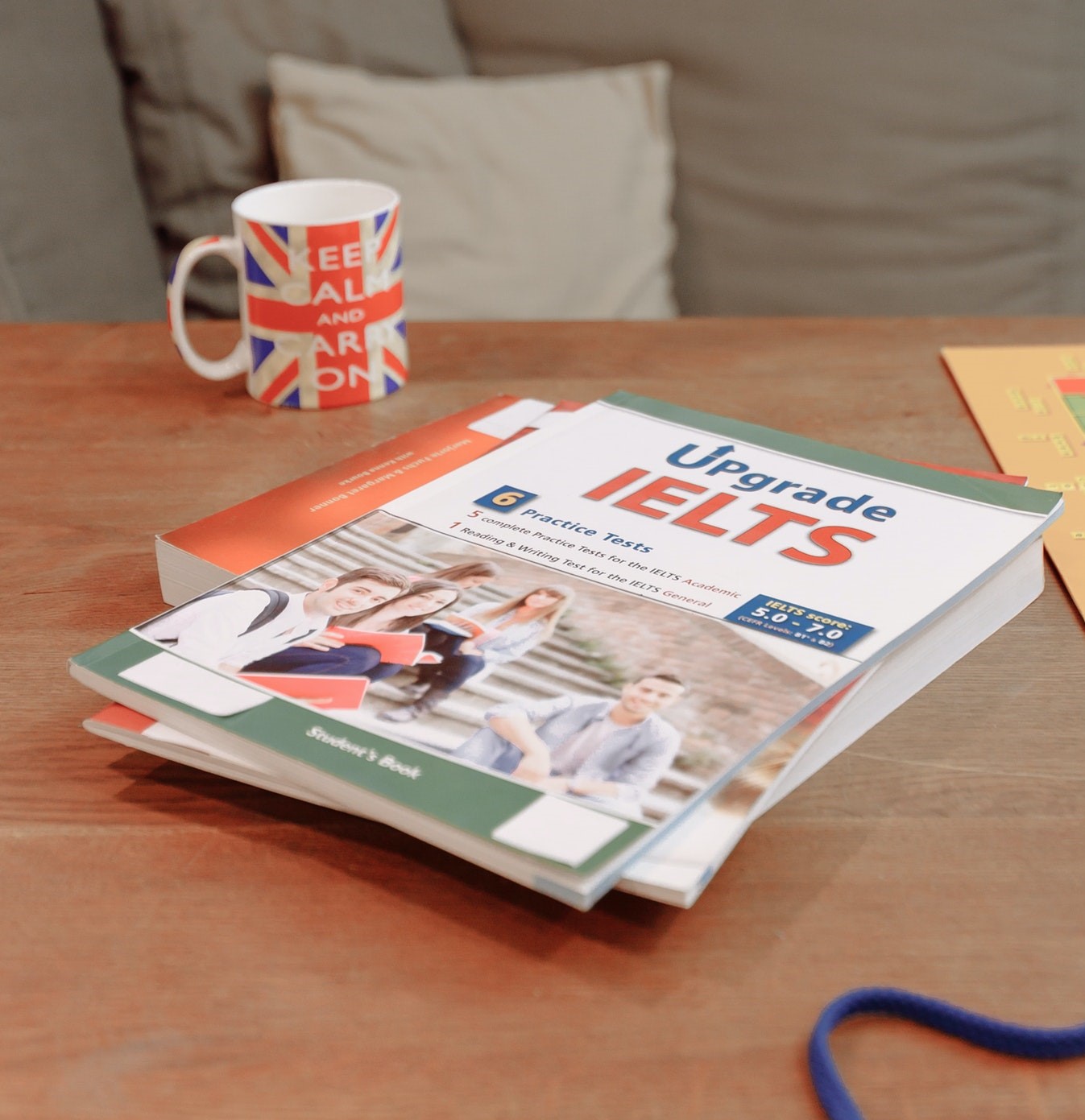Describe a rule that is important in your school or work – IELTS speaking part 2
Describe a rule that is important in your school/work
You should say:
- What the rule is
- What happens if someone breaks the rule
- Does everyone follow the rule
And explain why you think it’s important
- Example 1
 “A rule in my university that I think is actually extremely important is that students have to attend all their classes. Missing classes is a big no-no here, and it doesn’t matter if there’s a valid reason for missing them or not.
“A rule in my university that I think is actually extremely important is that students have to attend all their classes. Missing classes is a big no-no here, and it doesn’t matter if there’s a valid reason for missing them or not.
If someone is absent without informing the professor about it, they can get penalised by getting marked absent in the attendance record or even getting a zero on their attendance score. It could even lead to getting blacklisted in the college and not being allowed to sit in the exams.
I don’t think everyone follows the rule, especially the more laid back students who’d rather party than attend classes. But I think it’s really important to have this rule in place to ensure that students don’t take their education for granted and also to encourage an atmosphere of discipline and responsibility.
Even if someone doesn’t gain anything personally from attending classes, it’s important to keep up with the lectures for the sake of the others who do attend regularly and are trying hard to keep up with the syllabus. It’s just wrong to be selfish and be a spoilsport like that.
So, while it’s true that some people might take a little more lenient view of this rule, I think it’s vital for everyone to understand that education is extremely important and to treat it with the respect it so rightly deserves.
Thank you.”
- Idioms
A “big no-no” is an activity or decision that should not be done because it could have serious consequences. Example: Smoking on school grounds is a big no-no.
To be blacklisted means to be prevented from participating in something usually because of bad behaviour. An example sentence would be “He was blacklisted from the program after he was found to be breaking the rules.”
The idiom to take something for granted means to fail to appreciate something that you have and assume/expect it to be true or continue without question. For example: “She had taken her partner’s love for granted and did not realize how much she meant to him until it was too late.”
A “spoilsport” is someone who spoils something for others, usually by being overly serious, stern, or strict. Example sentence: The teacher was a real spoilsport, refusing to let us go to the playground at recess.
Example 2 (workplace)
 “It’s all hands on deck when it comes to following important rules at my workplace, so no slacking off or cutting corners. One of the most important rules I think is the dress code policy, which requires everyone to dress professionally and maintain a certain level of smartness at all times. Employees are expected to wear neat, clean and appropriate attire when they are representing the company in any capacity.
“It’s all hands on deck when it comes to following important rules at my workplace, so no slacking off or cutting corners. One of the most important rules I think is the dress code policy, which requires everyone to dress professionally and maintain a certain level of smartness at all times. Employees are expected to wear neat, clean and appropriate attire when they are representing the company in any capacity.
The consequences for not adhering to the dress code are clear: failure to adhere to the standard will result in harsh disciplinary action. The penalties could be anything from a verbal warning all the way to being fired. Everyone understands the importance of this rule, so most people follow it pretty well.
I think this rule is important for a few reasons. Firstly, it keeps workers looking professional and presents a good image of the company to clients. As well as that, it helps keep everyone on the same page, and if you know what you’re supposed to wear, it’s easier to match your colleagues and maintain an appearance of team unity.
Ultimately, following the dress code is important to not only keep everyone looking smart and professional but also to become part of a unified team. That’s why I think it’s important to nip any rule-breaking in the bud, which quickly encourages those responsible to keep up with the standards.
Thank you.”
- Idioms
“All hands on deck” is an idiom used to indicate that everyone needs to be involved in a task. For example, “We have a deadline that needs to be met, so it’s all hands on deck!”
To “slack off” means to avoid doing work or to act in a lazy manner. Example sentence: After working for hours on his essay, John decided to take a break and slacked off by playing video games.
To cut corners means to take shortcuts or skimp on quality or process in order to save time and/or money. For example: “The contractor cut corners on the construction and now the building is not very stable.”
The idiom “to be on the same page” means to be in agreement, to have the same understanding or same opinion on something. Example sentence: We need to make sure we are on the same page about this project before we start working on it.
To “nip something in the bud” means to prevent or stop something from developing further, before it gets out of hand. Example: We need to nip this issue in the bud before it causes any more damage.
Describe a rule that is important in your school or work – IELTS speaking part 3
What rules do people need to follow in public places in your country?
 “Well, personally I think when people are out in public places like the mall, parks, and beaches, it’s important to be respectful and considerate of others. For instance, no one likes someone blaring their music or having disruptive and loud conversations.
“Well, personally I think when people are out in public places like the mall, parks, and beaches, it’s important to be respectful and considerate of others. For instance, no one likes someone blaring their music or having disruptive and loud conversations.
I think people should also always abide by any local laws and rules, like in many places today no smoking or drinking is allowed in public parks.
As well as that, it’s also extremely important to clean up after yourself, whether it be beach trash or finished meals. We all have to do our part to keep the community clean and fun for everyone.”
Do you think it’s important for young children to learn to follow rules?
“Absolutely! I believe it’s terribly important for kids to learn from an early age the importance of following rules. By developing the habit of following rules when they are young, they grow up to be responsible citizens. For example, I remember when I was in kindergarten, my teacher taught us to line up and walk in an orderly manner from the playground to the classroom. It was a simple concept, but one that I’ve carried with me ever since.
Beyond kindergarten, I’ve seen first-hand the benefits of adhering to the rules set by parents, teachers, and society in general. Every decision we make in life is affected by rules, so it’s vital that we learn how to follow them early on.”
What are some reasons that cause people to break rules?
 “I guess people break rules for various reasons. Perhaps some do it to challenge authority, especially teenagers, while others are simply too lazy to follow them.
“I guess people break rules for various reasons. Perhaps some do it to challenge authority, especially teenagers, while others are simply too lazy to follow them.
As well as that, I think that many people think the rules are too restrictive and that they can ignore them without consequence. Others maybe break the rules due to peer pressure or to fit in.
I believe everyone makes mistakes and sometimes individual rights are undermined by a strict set of rules. Personally, I think it’s important to respect the law and the authority, but I can understand why sometimes people choose to break rules.”
Do you think that we need more rules in the world today?
“No, personally I don’t think we need more rules. We already have a ton of rules that we must follow, many of which are outdated and unnecessary.
For example, most schools forbid students from wearing jeans and wearing long hair. It’s incredibly restrictive and doesn’t support creativity or personal expression. If we keep adding new rules, we will end up with a world full of mindless drones who have no real identity of their own.”
More links for IELTS speaking part 2 and part 3 example answers
Describe a person who enjoys cooking for others
Describe a drawing/painting that you like
Describe a time you had a problem using a computer
Describe a photo that makes you feel happy
Describe a sports person/athlete you admire



































